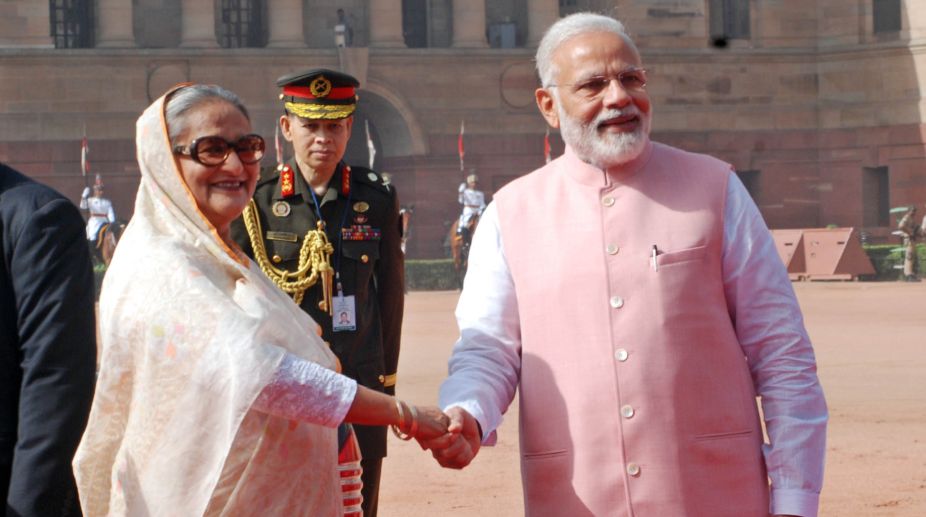Global meet showcases bamboo’s potential in sustainable development
Bamboo's potential for sustainable development was showcased in an international conference on "Just Transition to Net Zero – Role of Bamboo in the SAARC Region" held here.

(Photo: SNS)
With Pakistan playing spoilsport in economic integration of South Asia, India and Bangladesh have called for intensifying sub-regional cooperation among other SAARC countries in the areas of power, water resources, trade, transit and connectivity for their mutual benefit.
In this context, the two countries noted the progress made by the Joint Working Group (JWG) on sub-regional cooperation among Bangladesh, Bhutan, India and Nepal (BBIM), a joint statement issued after talks between Prime Minister Narendra Modi and his Bangladeshi counterpart Sheikh Hasina said late Saturday.
Advertisement
They welcomed the decision reached among India, Bangladesh and Bhutan for cooperation in the field of hydroelectric power and hailed the development as a new paradigm for sub-regional cooperation.
Advertisement
The two leaders reaffirmed their shared commitment to deepen regional cooperation to maximise the mutuality of interests and to ensure equitable share of mutual benefits in all areas, including trade, transport and energy.
They recognised the importance of various regional/sub-regional cooperative/collaborative initiatives to improve the lives and livelihoods of all the people across the two countries.
Modi and Hasina noted with satisfaction that India, Bangladesh and several other South Asian countries had decided to participate in the South Asia Satellite Project, which offers application of space technology for development of the region, including disaster management, the joint statement said.
Of late, all SAARC nations have been feeling that Pakistan has been scuttling all attempts aimed at economic prosperity of the region because of its perennial hostility towards India. Keeping this mind, Bangladesh, Nepal, Bhutan, Sri Lanka, Afghanistan and the Maldives have all shown their eagerness to participate in sub-regional economic projects with India acting as the initiator.
The joint statement said Modi and Hasina welcomed the fact that a trilateral MoU between Bangladesh, Bhutan and India for cooperation in the field of hydroelectric power had been worked out and noted that it would be signed at an occasion when leaders of all three countries would be present together.
Hasina requested Modi for facilitation of cross-border power sector cooperation with Nepal. Bangladesh, which has been facing power shortage, wants to purchase power directly from Nepal. For that purpose, it wants India's support for the transmission line.
The joint statement also suggested that India proposed to set up Special Economic Zones (SEZs) at certain places in Bangladesh. Modi expressed appreciation to Hasina for assigning an area of 1005 acres at Mirsarai for setting up an Indian SEZ. The two leaders expressed optimism that these SEZs would encourage Indian businessmen to bring in more investment to Bangladesh.
The two PMs noted the current level of bilateral trade between the countries and agreed that it has potential for growth. In this regard, they emphasised the need to remove all trade barriers, including removal of port restrictions to facilitate trade between the countries.
Advertisement